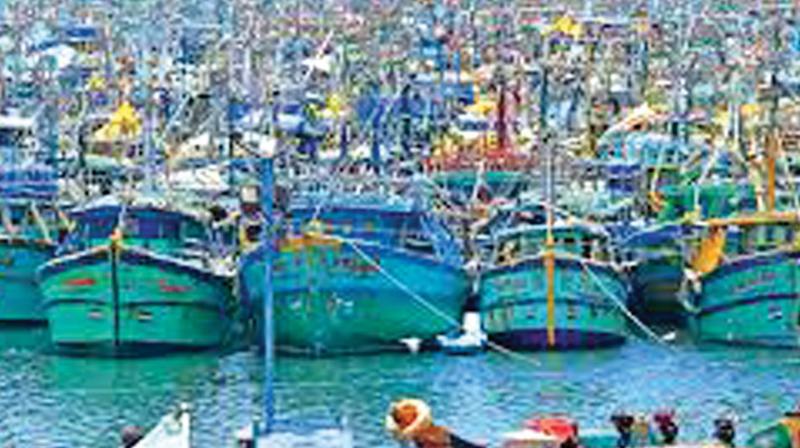Ban period fails to serve purpose: Fishermen
Kasimedu fishing harbour is the classic example, where the fish catch has dwindled over the years.

Chennai: The fishing ban period in exclusive economic zones increased from 47 days to 61 days along the Bay of Bengal covering Tamil Nadu coast based on the recommendation of a group of scientists associated with Centre for Marine Fisheries Research Institute, Cochin has failed to help TN fishermen and marine fish population, TN fishermen Association and TN scientists involved in fish breeding ecology said.
The annual fishing ban along the Eastern coast has been a debated subject with both TN fishermen and a section of professors in Marine science affiliated to Annamalai University and scientists in Tamil Nadu Fisheries Research Institute Ponneri disagreeing asking for fresh studies and more research on the subject.
The recent study by a group of marine biologists with Centre for Advanced study in Marine Biology, Annamalai University published in the Indian Journal of Geo Marine Sciences concluded that the fishing ban enforced in Tamil Nadu for 45 days during April-May every year to conserve the fishery resources has found that 48.93 per cent of fin and shellfishes breed during the northeast monsoon period along the coast of Tamil Nadu. Therefore fishing ban can be imposed during the northeast monsoon period against the current summer season April - May.“Fishermen demand scientific study along the coasts of Tamil Nadu, Andhra and Orissa to explore the possibility of shifting the ban during monsoon period. Kerala and Maharashtra ban fishing during October -November and this helps fishermen to be safe during cyclones and storm serving dual purpose, but in TN, the ban has not served any purpose,” said Nanjil Ravi of Akila Indhiya Meenavar Sangam.
Kasimedu fishing harbour is the classic example, where the fish catch has dwindled over the years. And during the same period, the central government is allowing foreign fishing ships to fish, he alleged, a fact that has been denied by the Centre.
Most fishes breed during monsoon when the fresh enters the marine estuary and this is basic ecology, but the policy makers fail to understand this concept by arguing that 40 per cent of the fish breed during summer, Ravi said insisting for a change in the ban period.

